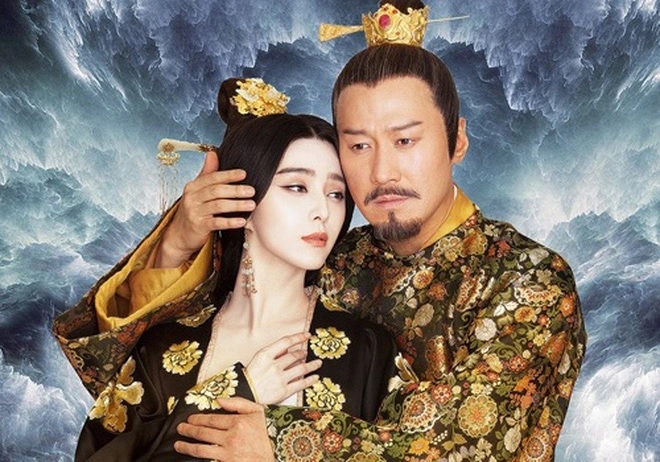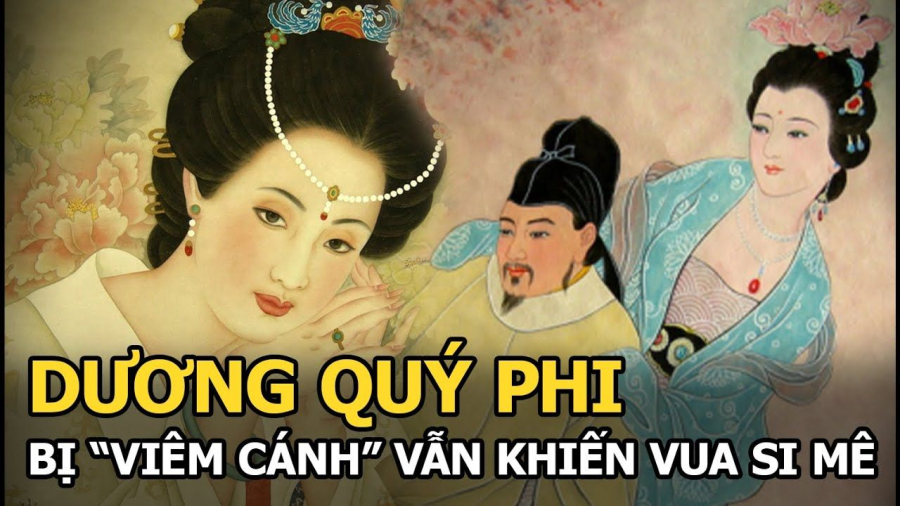The beauty of Dương Ngọc Hoàn is described as whenever she looks at flowers, the flowers wither in shyness (Tu Hoa). Đường Huyền Tông was infatuated with Dương Quý Phi – a beauty 34 years his junior, to the point of making his daughter-in-law his concubine.
According to historical records, initially Võ Huệ Phi – the concubine of Emperor Ming of the Đường Dynasty, chose Dương Ngọc Hoàn (who was 17 at the time) to be the wife of Thọ Vương Lý Mão (the 18th son of the king). Therefore, Emperor Ming of the Đường Dynasty, who was over 50 at the time, was the father-in-law of Dương Ngọc Hoàn.
Immediately after seeing the beautiful and charming daughter-in-law, Emperor Ming of the Đường Dynasty wanted Dương Ngọc Hoàn to become his concubine. Therefore, after Võ Huệ Phi died, Emperor Ming of the Đường Dynasty used the excuse of his daughter-in-law becoming a nun to mourn his mother-in-law.

Dương Quý Phi, also known as Dương Ngọc Hoàn. She was naturally beautiful and was ranked among the Four Great Beauties of Chinese history.
Unlike the image of the elegant and graceful concubines and imperial consorts depicted in movies, Dương Quý Phi possessed a full figure that demonstrated vibrancy and vitality.
Although her name was synonymous with beauty in historical records, how did this beautiful woman turn her “wings” into a strategic weapon to win the Emperor’s favor?
A perfectionist in makeup and skincare
Fair and rosy skin like cherry blossoms, plump and juicy like grapefruits, these were the most obvious advantages of Dương Quý Phi. Despite her natural beauty that could make the most beautiful flowers in the garden bow in reverence, she never neglected her skincare routine.
Every day, she washed her face with a carefully prepared mixture of chicken egg, musk, and almonds. The beloved concubine also applied a medicinal formula called “Kim quốc cung nữ nhi tự tán” to nourish her skin. Its ingredients included silkworm feces, white peony seeds, peas, cloves, white sandalwood, pear seeds, and oyster shells. These ingredients were finely ground and mixed together, then applied to the face and body for skin nourishment.
Dương Quý Phi also placed great importance on beauty from the inside out. To keep her bust firm and attractive to the Emperor’s eyes, she often ate papaya. Ripe papaya and papaya soup were frequently included in her diet.
But how did she make the Emperor “addicted” to her… aroma?
Among the Four Great Beauties of ancient China, Dương Quý Phi perhaps had a more difficult weakness to accept. Possessing “special” sweat glands, her body odor was strong to the point where it surprised people in the kingdom why a beautiful woman like her would suffer from such a serious “wing inflammation”.

Unwilling to succumb, she found her own way to address this weakness.
The beloved concubine often used dâu tằm leaves and tầm gai leaves to brew bathing water to eliminate bacteria and body odor. Or to avoid high temperatures that could cause the bath water to spoil, she soaked the aforementioned ingredients in purified water and used it gradually.
Hot springs offer many miraculous health benefits, but for Dương Quý Phi, they were also a way for her to combat her “wing” odor. She also had the palace maids pluck various types of fragrant flowers to infuse into the bathwater instead of applying perfume to her body. With Dương Quý Phi’s perfectionist nature in her beauty routine, it’s no wonder the Emperor was “madly in love” with this famous beauty who was known for her distinctive “wing inflammation” scent.



































